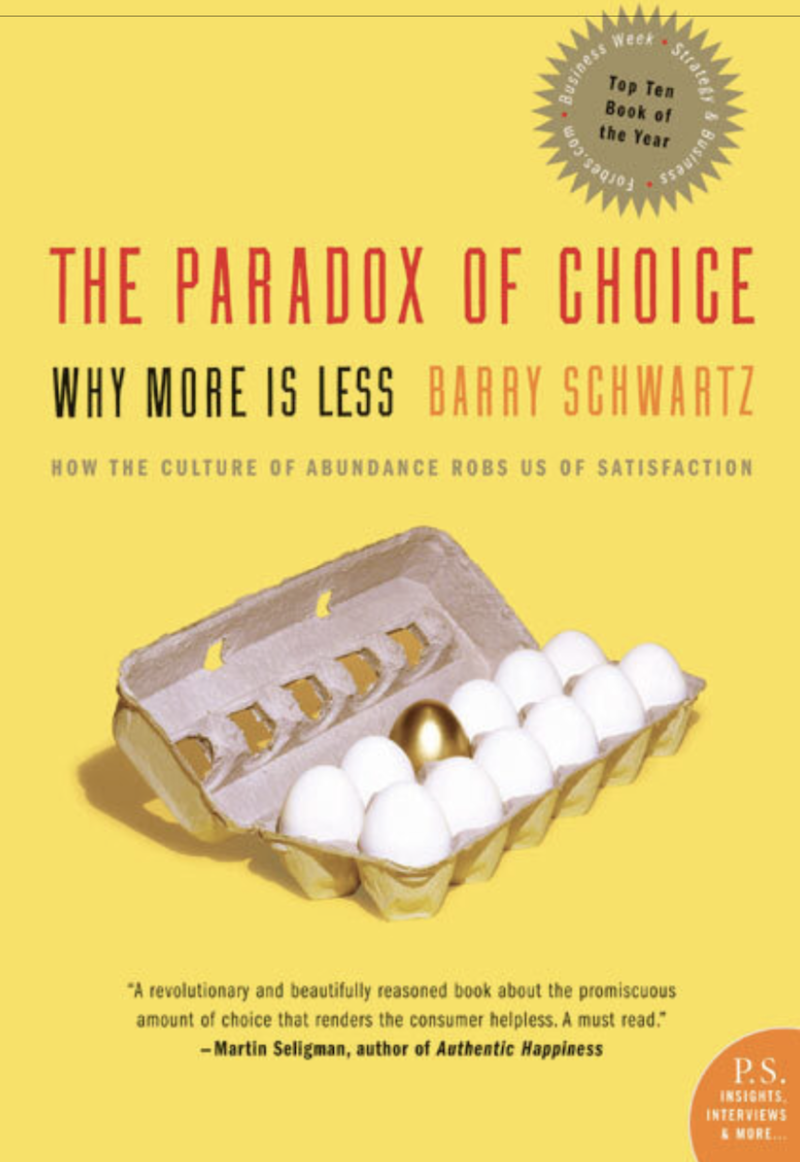Book Review: The Paradox of Choice by Barry Schwartz
Rating: 4/5
A solid book about how the abundance of choice affects decision-making. The abundance of choice may be seen as an improvement to our freedom, but can also overwhelm us. The paradox is that what leads to more control over our lives not necessarily simplifies them. “Oppression can exist at either extreme of the continuum.”
The chapter about maximizers and satisfiers is especially good. The first choice we must face is between choosing the absolute best (maximizers) and choosing something good enough (satisfiers).
Maximizers need to be sure that every decision is the best that can be made. The only way to truly know—if that is possible—is to check out all the alternatives, which is impossible most of the time, more in the face of the abundance of options. This is many times a source of frustration for maximizers, even after having made a decision.
In contrast, satisfiers know when something is good enough. They don’t settle for mediocrity but have criteria and standards. Once those are met, they stop searching.
Maximizing may think that they only accept the best. However, according to Julian SImon, the real maximizer factors all costs in (time, money, anguish, etc.). Satisficing is the maximizing strategy.
We need to recognize the point of diminishing returns. The real wisdom is knowing what is worth maximizing—very few things—and accept good enough for the rest, without obsessing over other options, and move on after deciding.
Another chapter I liked is the one about trade-offs, opportunity costs and sunk costs. People feel uncomfortable making decisions that involve trade-offs. However, most decisions involve trade-offs. Thinking about opportunity costs is an essential part of decision-making.
